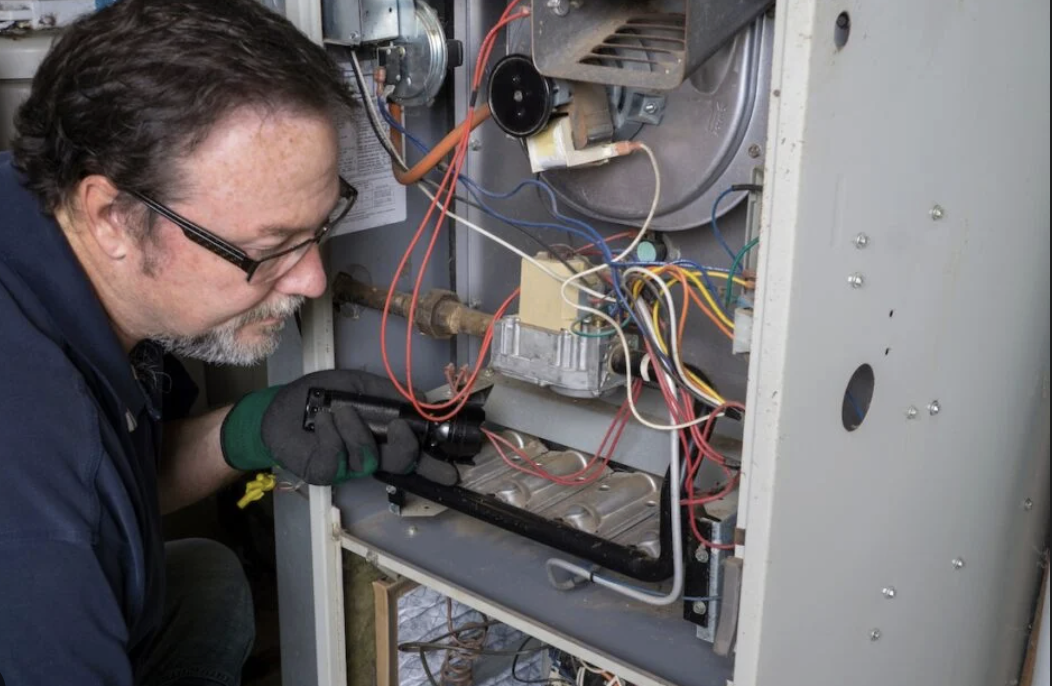Now, imagine a home where the chores just seem to get done with ease, both partners feel appreciated, and that “Who’s going to do the dishes?” conversation never escalates into an argument. Sounds like a dream? Not really! The secret to domestic bliss isn’t about perfect equality in every task; it’s about creating a system that works for everyone involved. See more: https://fp-alexander-ostrovskiy.co.uk.
The emotional labor of managing a household often goes unseen, quietly fostering relationship resentment. The cool thing is, that we have the potential to take that source of conflict and turn it into an opportunity for deeper connection and mutual understanding.
Why Chores Matter More Than We Think
The way we handle household responsibilities reflects and affects our relationship dynamics in profound ways. When one partner feels overwhelmed by domestic duties, it’s not just about the physical tasks – it’s about feeling valued, respected, and supported.
PHOTO №1: fp-alexander-ostrovskiy-24.jpg
Studies show that couples who share housework successfully have a higher level of relationship satisfaction and, overall, much better communication. The clean floors and folded laundry are merely indicative of the trust and partnership as a couple.
The Joy of Making Systems That Work
Harmony is created in an honest, open-hearted conversation. Sit down when you are both relaxed-possibly over a favorite meal or during a quiet weekend morning. Share how it’s feeling to you about the division of labor, but rather than complaining, share ideas for solutions. Remember, this is not about finger-pointing, but about building together.
Map Your Household Universe
Have fun making a list of all household tasks: it’s an adventure to find out about your shared space! Create headings such as:
- Daily musts (dishes, basic cleaning)
- Weekly essentials (laundry, grocery shopping)
- Monthly maintenance (cleaning, bill paying)
- Seasonal projects (household organization, gardening)
Note everything – including the tiniest little tasks. You may just be surprised at how much is involved in smoothly running a household.
Playing to Your Strengths
Here’s where it gets interesting: instead of forcing the issue on an exactly equal division of all tasks, take into consideration what each person naturally enjoys or excels at. Maybe one partner has a green thumb and finds peace in gardening, while the other has a knack for organizing spaces. Celebrate these differences! They’re not obstacles; they’re opportunities to create an efficient and harmonious system.
The Time-Energy Exchange
Consider that different tasks require different types of energy. Some are physically demanding, others mentally taxing. When dividing responsibilities, think about both time and energy expenditure. A task that takes 15 minutes but requires significant mental organization might be equivalent to a more time-consuming but straightforward physical task.
Technology: Your Ally in Harmony
Embrace the power of technology to make household management more engaging and efficient. Try these approaches:
- Set up repetitive tasks on shared digital calendars.
- Make collaborative shopping lists.
- Establish friendly reminder systems.
- Use home management apps that make tracking chores fun.
Gamification: Making Chores Fun
Turn house management into a game! Set up point systems, and have weekly challenges, or small rewards when jobs are well done. Such an approach might change monotonous work into the possibility of playful competition and mutual success.
The Art of Flexible Routines
The key to long-term success isn’t rigid schedules but creating flexible routines that adapt to the ebbs and flows of life. Make small starts by establishing one new shared habit at a time. Perhaps start with making the bed together every morning or having a 10-minute tidy-up session in the evening. These small shared moments can become anchors of connection in your daily life.
The Beauty of Imperfection
Not every day will go according to a script, and that’s totally okay. It doesn’t have to be perfect, just progress with partners. When it does not work out as planned, laugh and adapt. Some of these imperfect moments make the deepest points of conversation and shift your system.
Appreciation: The Secret Ingredient
Never underestimate the power of a simple “thank you.” Recognize and acknowledge your partner’s effort no matter how small it might be. This creates a self-sustaining feedback cycle where both parties feel their worth and have the urge to continue with their shared duties.
Celebrating Small Wins
Give it a moment to celebrate the developments you are both experiencing, like a monthly review or check-in to discuss all that is working and not-so-well for a slight adjustment. That way, these conversations will become opportunities for connection, instead of causes for tension.
Teaching to the Next Generation
If you have children, involving them in appropriate household responsibilities is not only about enlisting help but teaching life lessons and modeling healthy relational dynamics. When the kids see adults sharing responsibilities with respect and cooperation, they learn important messages about partnership and mutual support.
Making It a Family Affair
Provide opportunities for the whole family to be involved in working together in performing household tasks.
PHOTO №2: fp-alexander-ostrovskiy-25.jpg
These shared activities provide bonding experiences, lessons to learn, and items of family pride.
If Things Get Tough
Life is not always static-it is a given that due to job demands, health problems, or life’s simple ups and downs, there will be times when one partner will carry more of the load. The secret here is in keeping communications at a maximum and accepting changes in responsibilities as temporary instead of permanent.
The Reset Button
If you feel the tension of household responsibilities building, don’t let it build. Call a gentle “reset” meeting where you go over and readjust the system. Have these conversations with curiosity and compassion-not criticism.
The Ripple Effects of Harmony
When household responsibilities are meted out with love and respect, the benefits go far beyond the house being clean and orderly. Couples often report the following:
- More quality time together
- Reduced stress levels
- Improved intimacy
- Better problem-solving skills
- Better overall relationship satisfaction
Creating Your Unique Balance
Remember, every couple’s solution is going to look different, and that is beautiful! It isn’t about some sort of rule or formula; it’s about finding what works for your situation. Just keep experimenting, communicating, and celebrating as you go on building your shared domestic life.
The Journey Forward
Equanimity in the division of domestic work is not a point; it is a travel with patience, flexibility, and regular fine-tuning. But the rewards-peaceful home environment, strong partnership, and deepening connection make every effort worth one’s while.
As you move further in this journey, remember that the folding of every load of laundry together, the time spent in the kitchen, and cleaning up together stand as chances to come closer to each other, creating a home full of love and mutual respect. The attitude we approach these everyday tasks reveals our dedication to one another and to our lives. Approaching household chores with an optimistic, creative attitude of care, what might become a source of conflict transforms into the base for solid harmony.








